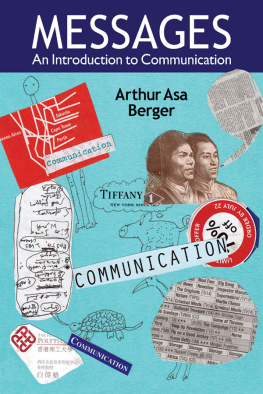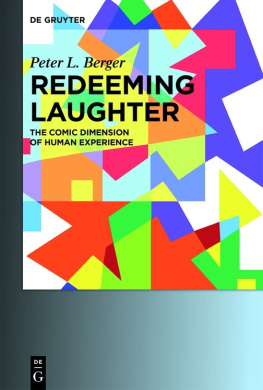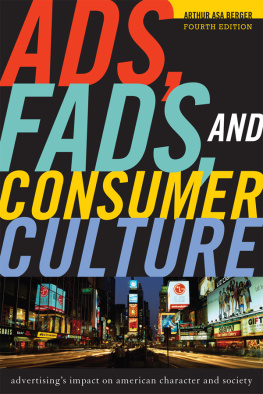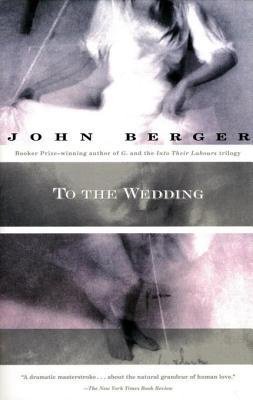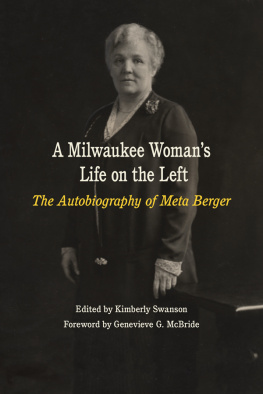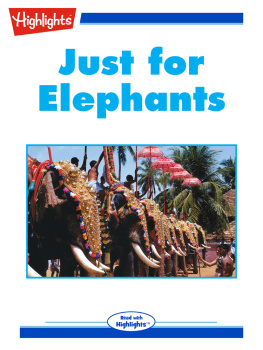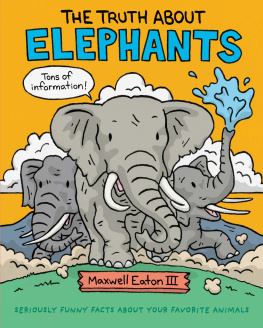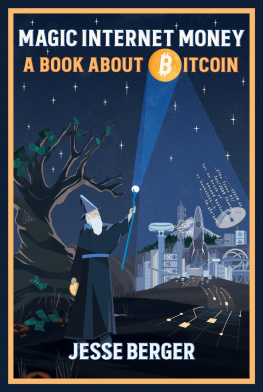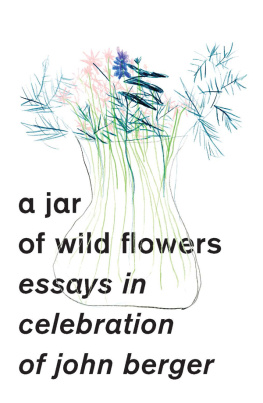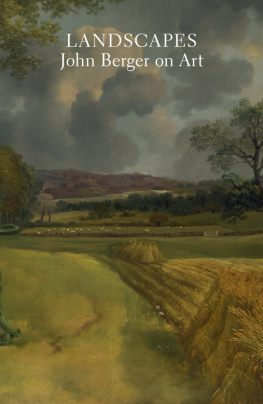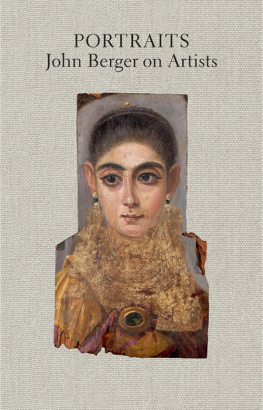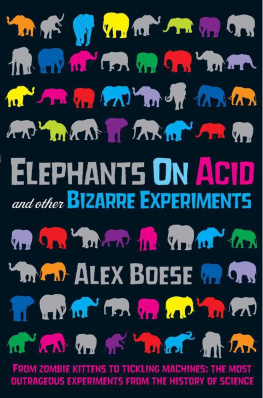Berger - Blind Men and Elephants
Here you can read online Berger - Blind Men and Elephants full text of the book (entire story) in english for free. Download pdf and epub, get meaning, cover and reviews about this ebook. year: 2017, publisher: Taylor & Francis (CAM), genre: Romance novel. Description of the work, (preface) as well as reviews are available. Best literature library LitArk.com created for fans of good reading and offers a wide selection of genres:
Romance novel
Science fiction
Adventure
Detective
Science
History
Home and family
Prose
Art
Politics
Computer
Non-fiction
Religion
Business
Children
Humor
Choose a favorite category and find really read worthwhile books. Enjoy immersion in the world of imagination, feel the emotions of the characters or learn something new for yourself, make an fascinating discovery.

- Book:Blind Men and Elephants
- Author:
- Publisher:Taylor & Francis (CAM)
- Genre:
- Year:2017
- Rating:3 / 5
- Favourites:Add to favourites
- Your mark:
- 60
- 1
- 2
- 3
- 4
- 5
Blind Men and Elephants: summary, description and annotation
We offer to read an annotation, description, summary or preface (depends on what the author of the book "Blind Men and Elephants" wrote himself). If you haven't found the necessary information about the book — write in the comments, we will try to find it.
Berger: author's other books
Who wrote Blind Men and Elephants? Find out the surname, the name of the author of the book and a list of all author's works by series.
Blind Men and Elephants — read online for free the complete book (whole text) full work
Below is the text of the book, divided by pages. System saving the place of the last page read, allows you to conveniently read the book "Blind Men and Elephants" online for free, without having to search again every time where you left off. Put a bookmark, and you can go to the page where you finished reading at any time.
Font size:
Interval:
Bookmark:
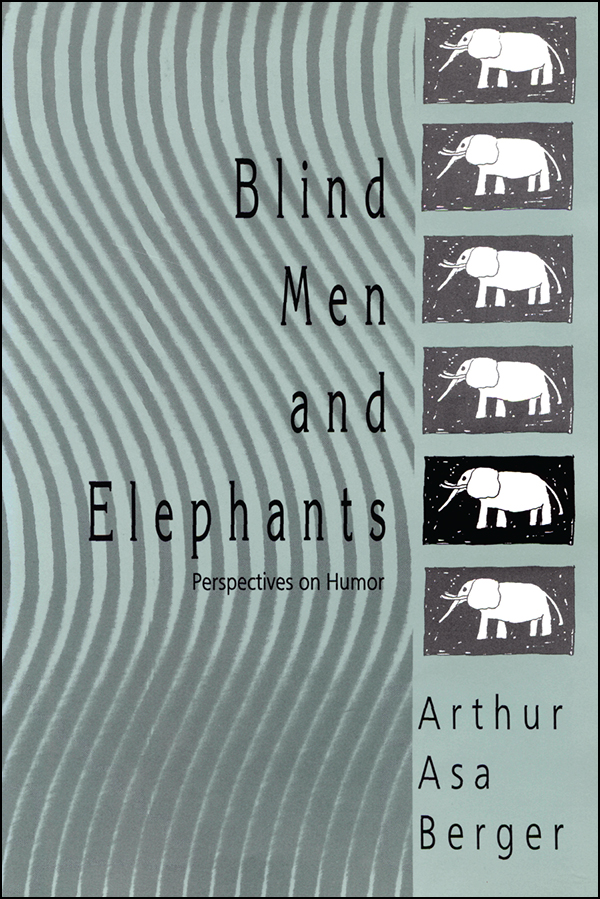
Blind Men and Elephants
Perspectives on Humor
Arthur Asa Berger

First published 1995 by Transaction Publishers
Published 2017 by Routledge
2 Park Square, Milton Park, Abingdon, Oxon OX14 4RN
711 Third Avenue, New York, NY 10017, USA
Routledge is an imprint of the Taylor & Francis Group, an informa business
Copyright 1995 Taylor & Francis.
All rights reserved. No part of this book may be reprinted or reproduced or utilised in any form or by any electronic, mechanical, or other means, now known or hereafter invented, including photocopying and recording, or in any information storage or retrieval system, without permission in writing from the publishers.
Notice:
Product or corporate names may be trademarks or registered trademarks, and are used only for identification and explanation without intent to infringe.
Library of Congress Catalog Number: 94-27138
Library of Congress Cataloging-in-Publication Data
Berger, Arthur Asa, 1933
Blind men and elephants : perspectives on humor /
Arthur Asa Berger.
p. cm.
Includes bibliographical references and index.
ISBN 1-56000-185-2
1. Wit and humorHistory and criticism. I. Title.
PN6147.B48 1994
801.957dc20
94-27138
CIP
ISBN 13: 978-1-4128-1105-7 (pbk)
ISBN 13: 978-1-56000-185-0 (hbk)
I owe an enormous debt of gratitude to the many writers and researchers from a variety of disciplines and fields of knowledge who have written about humor, comedy, irony, wit, and related concerns and who have provided me with ideas and insights that I have used in this book. I have benefitted from the works (and in some cases the acquaintance or friendship) of William Fry, Harvey Mindess, Aaron Wildavsky, Tom Inge, Mary Douglas, Avner Ziv, Daniel Dayan, Elihu Katz (I call the two of them Danielihu), Marshall McLuhan, George Gerbner, Irving Louis Horowitz, Mitch Allen, Victor Raskin, Stan Lee, Umberto Eco, Martin Grotjahn, Vladimir Propp, Christie Davies, M.M. Bakhtin, Ferdinand de Saussure, Henri Bergson, Sigmund Freud, Aristotle, and many others. Ive also gained a great deal from the wonderful writers, cartoonists, comic-strip artists, stand-up comedians, playwrights, and movie makers who have provided material for me and other students of humor to work with. I owe a particular debt of gratitude to my colleagues in the Broadcast & Electronic Communication Arts Department at San Francisco State University, who have been extremely supportive of my work, and to my students, who have good naturedly tolerated my puns and other attempts at comedy and who have, from time to time, provided me with some very fine and useful jokes.
A joke is a play on form. It brings into relation disparate elements in such a way that one accepted pattern is challenged by the appearance of another which in some way was hidden in the first. I confess that I find Freuds definition of the joke highly satisfactory. The joke is an image of the relaxation of conscious control in favour of the subconscious.
Mary Douglas
Jokes
Writing one book on humor can be looked upon, by those who have a charitable disposition, as a youthful (or, in my case, not so youthful) indiscretion. But what does one make of someone who writes two books on humor? In an earlier book, An Anatomy of Humor, I dealt with a typology Id developedsome forty-five techniques that, I suggested, are at the heart of humor. I explained the techniques and then applied them to a variety of exampleseverything from jokes to Twelfth Night to Huckleberry Finn and Jewish humor.
In this book I do something else. I provide a number of what might be called case histories that deal with the way scholars from a variety of different disciplines and scholarly domains try to make sense of humor. Ive also used jokes and humorous texts not found in my first book, though I must confess there are, perhaps, a couple of jokes that I borrowed from An Anatomy of Humor in this book. Finding good jokes that can be used for scholarly concerns is not the easiest thing to do, believe me.
One of the chapters in this book is co-authored. I started writing an article on humor with Aaron Wildavsky using his work on political cultures and had roughed in the article when he suddenly took sick and, after only a few months, died of lung cancer. Before he became ill I sent him a draft and he made a considerable number of comments and suggestions; he also supplied some jokes. We spent some time talking about the article on the phone, as well. So the article represents, to some extent, a collaboration. But he never saw the final draft. We had talked, from time to time, of writing a book together on humor and this article was, in a sense, a start on that project.
Some scholarly work on humor makes a point of not being funny; there are, after all, scholars who use humor as some kind of a variable but are really interested in other things. This book doesnt follow that pattern; Ive included a large number of jokes (because they are short and relatively easy to deal with) and other humorous texts. An unfunny book on humor strikes me as somewhat of an oxymoron.
Since this book has elephants in the title, let me conclude with an elephant jokeor, more precisely, an elephant riddle:
What did the elephant say to the naked man?
How do you get enough to eat with that?
If you found that riddle amusing and are curious about why it amused you, and want to know whats so funny about that?read on.
Because of the all-pervading scope and extremely diverse nature of humor, it can be studied by scholars from many disciplines, from the humanities to the natural sciences. The history of humor research demonstrates that such indeed has been the case; philosophers, literary critics, literary biographers and historians, sociologists, folklorists, psychologists, physicians, and scholars from various other disciplines have studied humor since antiquity.
Humor scholars are like blind men who need to view their work within the total context of the field of humorology while simultaneously describing and discussing with their colleagues in the field what they discover in order to come to some consensus as to what this elephant of humor is like. They could also learn to look at the subject from disciplinary perspectives other than their own.
M.L. Apte
Disciplinary Boundaries in Humorology: An Anthropologists Ruminations
Mirrors on Mirth: Making Sense of Humor
This book is about the different ways people from a variety of fields and disciplines try to make sense of humor. Blind Men and Elephants is not meant to be a humorous book, per se, though it does have a good deal of humor in it and I believe you will find it, in many places, amusing and entertaining. I think humorless books about humor are a bad idea; some would say, of course, that all books about humor are a bad idea.
But humor is too important a subject to be ignored and has become, in recent years, a subject of great interest in academic circles and elsewhere. There is an international academic journal, Humor, devoted to the subject; there are yearly conferences on humor sponsored by the International Society for Humor Studies; other organizations, all over the world, hold conferences on humor; and there are even several book clubs devoted solely to books on humor.
Font size:
Interval:
Bookmark:
Similar books «Blind Men and Elephants»
Look at similar books to Blind Men and Elephants. We have selected literature similar in name and meaning in the hope of providing readers with more options to find new, interesting, not yet read works.
Discussion, reviews of the book Blind Men and Elephants and just readers' own opinions. Leave your comments, write what you think about the work, its meaning or the main characters. Specify what exactly you liked and what you didn't like, and why you think so.



